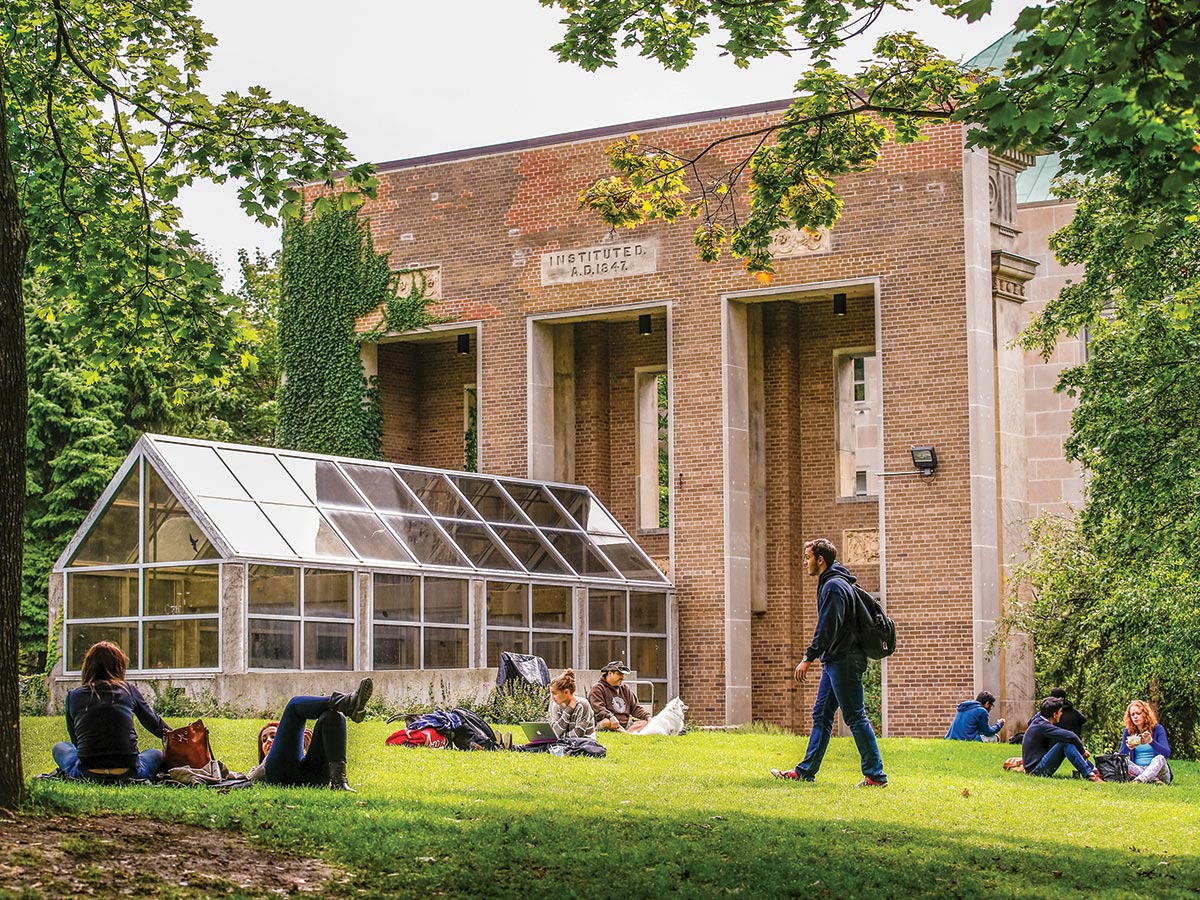Spatial Analysis (MSA)
Part of the Faculty of Arts

Format: Full-time, Part-time
Degree Earned: Master of Spatial Analysis
The unique MSA degree is awarded through an academically rigorous yet professionally oriented graduate program. In project-based courses, a practicum placement, and a major research paper or thesis, students learn to think geographically and master Geographic Information Systems (GIS) to support operational and strategic decision-making in government and industry.
Spatial analysts work in business, environmental consulting, crime analysis, social policy, telecommunications, epidemiology and resource management. For example, they delineate market areas, estimate sales potentials, recommend facility locations or conduct environmental assessments. With the effective use of maps, location analysis and site suitability assessments, our graduates are shaping the economic and social well-being of cities, the settlement and conservation policies of regions, and the health and connectivity of people across the globe.

MSA
- Completion of a four-year undergraduate (or equivalent) degree from an accredited institution
- Minimum GPA or equivalent of 3.00/4.33 (B) in the last two years of study
- Statement of research interest
- Resumé/CV
- Transcripts
- Two letters of recommendation
- English language proficiency requirement
More information on admission requirements. Due to the competitive nature of our programs, it is not possible to offer admission to everyone who applies that meets the minimum entrance requirements for the program.
Students are encouraged to submit applications prior to the first consideration date to increase their chances of securing financial support for their graduate studies. Applications received after the first consideration date will be accepted and reviewed based on spaces remaining in the program.
See application dates.
For detailed graduate tuition and fees information please visit Fees by Program.
For information on scholarships, awards and financing your graduate studies visit Financing Your Studies.
Faculty and student research span a mind-blowing range of topics across the three fields of study:
- Business/commercial applications
- Physical/environmental geography and landscape analysis
- Social and community information analysis
Recent student research topics range from socio-economic analysis of Toronto neighbourhoods to ice cover in the high Arctic; offender journey to crime and risk terrain to spatiotemporal analysis of regional and super-regional shopping centres across Canada; impact assessment of proposed school and library closures to trade area delineation techniques for cinema patronage; urban heat island to immigrant health patterns and the geography of aging. Common to our research is the geographic perspective and the use of spatial analysis methods and tools. Student research is often quantitative but includes qualitative and mixed-methods research. We employ commercial and opensource GIS packages, web map services, remote sensing software, statistical and business intelligence tools, as well as custom scripts, office software, and paper-and-pencil approaches.
MSA courses and student research are supported by over 25 faculty members with expertise across all areas of geography and allied disciplines. A dedicated computer lab is located within the Department’s office space. Some of the named research centres and groups affiliated with the MSA include:
- Centre for the Study of Commercial Activity (CSCA)
- Laboratory for Geocomputation
- Geographic Information Science and Systems Group
- The Centre for Immigration and Settlement
- Urban Forest Research and Ecological Disturbance (UFRED) Group
- Polar Regions Spatial and Environmental Analysis Laboratory (POLAR SEAL)
Graduate Admissions
Admissions information and how to apply
Graduate Studies Admissions Office
11th Floor, 1 Dundas Street West
Toronto, ON
Telephone: 416-979-5150
Email: gradhelp@torontomu.ca
For information specific to programs, please see the program contact information below.
Program Contacts
Dr. Eric Vaz
Graduate Program Director
PhD, New University of Lisbon
Research areas: Geographic Information Systems, Spatial Analysis, Complex Spatial Modeling, Business GIS applications, Health Geography, GIS Programming
Telephone: 416-979-5000 ext. 553121
Email: evaz@torontomu.ca
Lisa Benadiba
Graduate Program Administrator
Telephone: 416-979-5000 ext. 557440
Email: spatial@torontomu.ca
“The advanced data management and analysis skills I am learning in the MSA program have already been extremely valuable in my placement with a public health agency. These skills are transferable to a wide variety of applications, thus opening a world of career opportunities to MSA graduates.”
 (external link)
(external link)
Student Profile (external link)
After graduation, Amanda Maze, (master of spatial analysis alumna) utliized her skills to support business cases and analyze customer trends in the finance industry, leading to recruitment by a major retail company, where she is now director of a spatial strategy team.

Once you’ve made an informed choice about which program(s) you are going to apply to, preparing your application requires careful research and planning.
Funding
At Toronto Metropolitan University, we understand that pursuing graduate studies is a significant financial investment. Funding comes from a combination of employment contracts (as a teaching assistant), scholarships, awards and stipends. There are a number of additional funding sources – internal and external – available to graduate students that can increase these funding levels.
Research
As an urban innovation university, Toronto Metropolitan University offers 60+ cutting-edge, career-oriented graduate programs, as well as 125+ research centres, institutes and labs, in a wide range of disciplines. Our close connections with industry, government and community partners provide opportunities to apply your knowledge to real-world challenges and make a difference.
